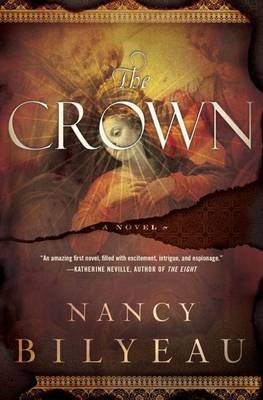Reviewed by brokentune on
I was quite excited about starting The Crown. Usually I don't seek out historical fiction set in Tudor England but the prospect of reading this with a book club was too good to miss.
This is the first installment of a series following Joanna Stafford, a daughter of a Catholic family that has been regarded a threat to Henry VIII, a novice at Dartford Priory, and an accidental adventurer it seems.
The beginning of the book was really promising as Joanna sets out to London to witness the execution of her cousin and to offer her moral and spiritual support. What I liked about the beginning was that Joanna's character and motivations seemed very similar to those of Antigone in the play by Sophocles, and I was hoping to see if her character would develop in a similar way.
From then on, the story gathered a lot of pace and Joanna seemed to be thrown from one task to another in no time.
I don't know what my expectations were with respect to the story but there seemed to be an imbalance between the task of writing to move the plot and writing to convey the historical aspects of the story.
And this is where the book lost me. There is a lot of detail about life in Tudor England, but it didn't somehow manage to create Tudor England in my imagination. Partly, I think this is because the author has been very ambitious to show that she really understands the times and this sometimes comes across as info-dumping and sometimes as plain name-dropping of historical figures. I know that Cranmer etc. were around at the time, but this has nothing to do with the actual story at hand. And while the political and religious tensions of the time are a catalyst to Joanna's story, I feel it would have better served the story to replace the constant name dropping with an investigation into the characters motivations and thoughts and a little more detail of their spaces they inhabit. To replace it with writing that makes the reader feel like they have been transported through time and that provides a near visceral experience of what it would have been like to walk in Joanna's shoes.
Moving on...
Reading updates
- Started reading
- 16 March, 2015: Finished reading
- 16 March, 2015: Reviewed
